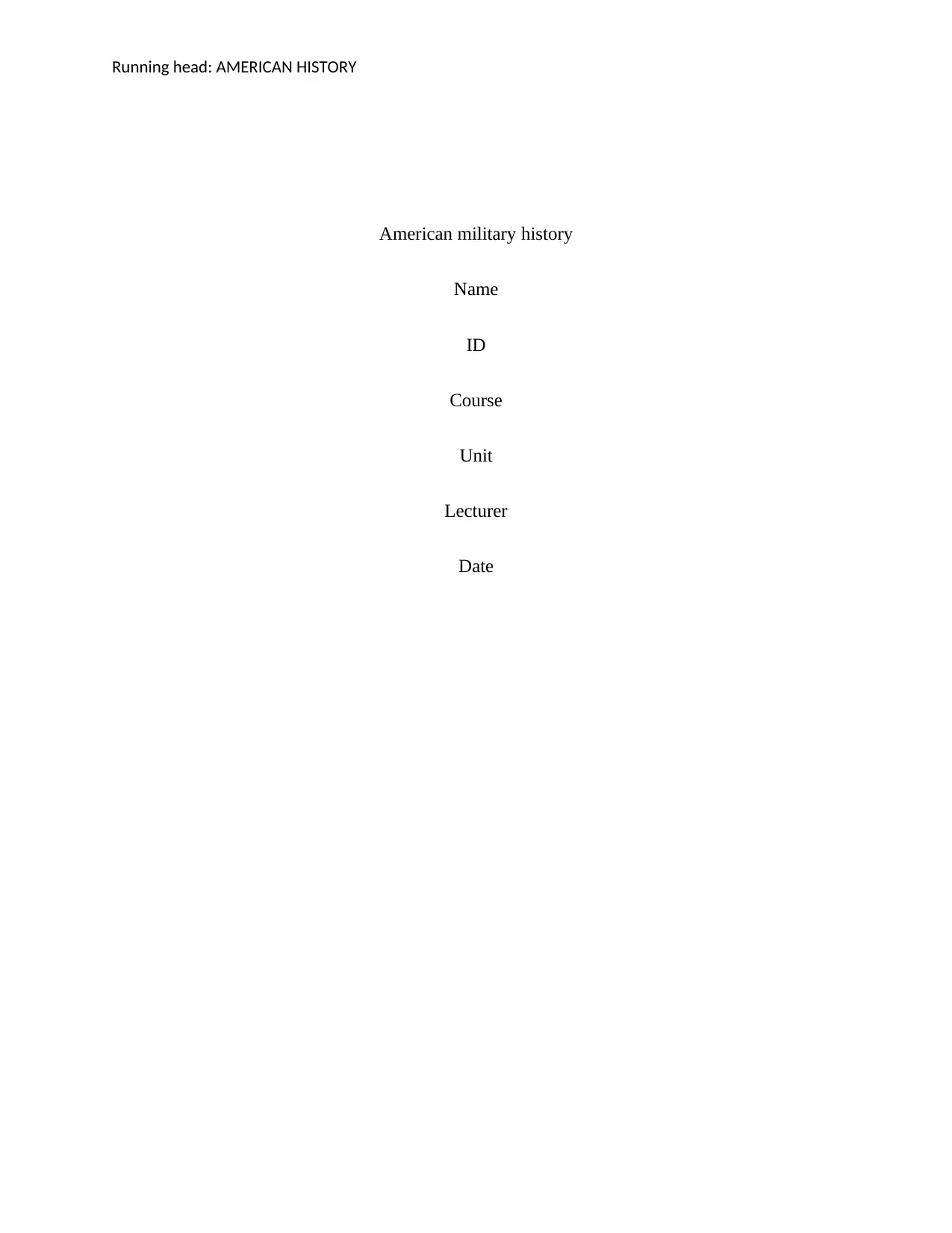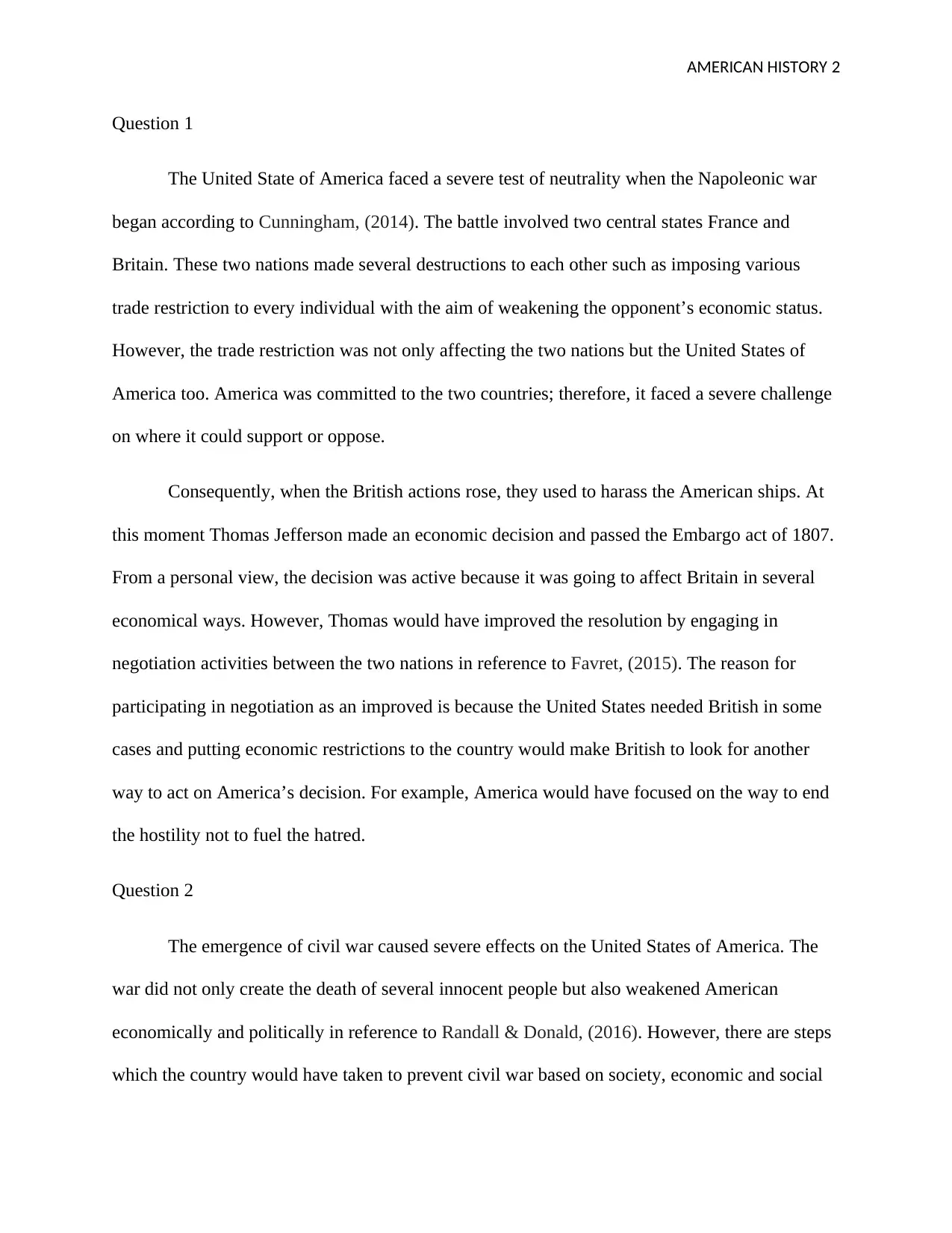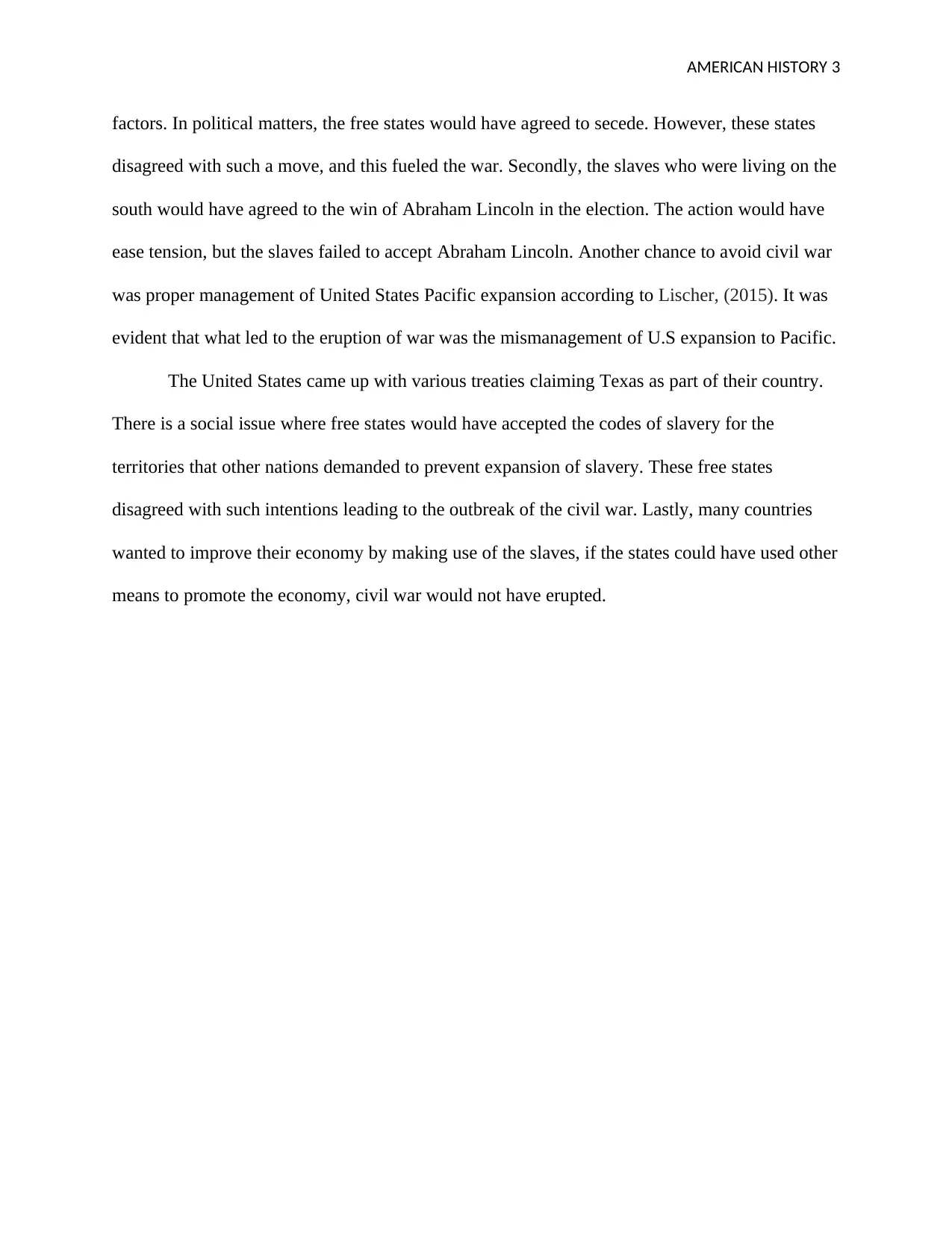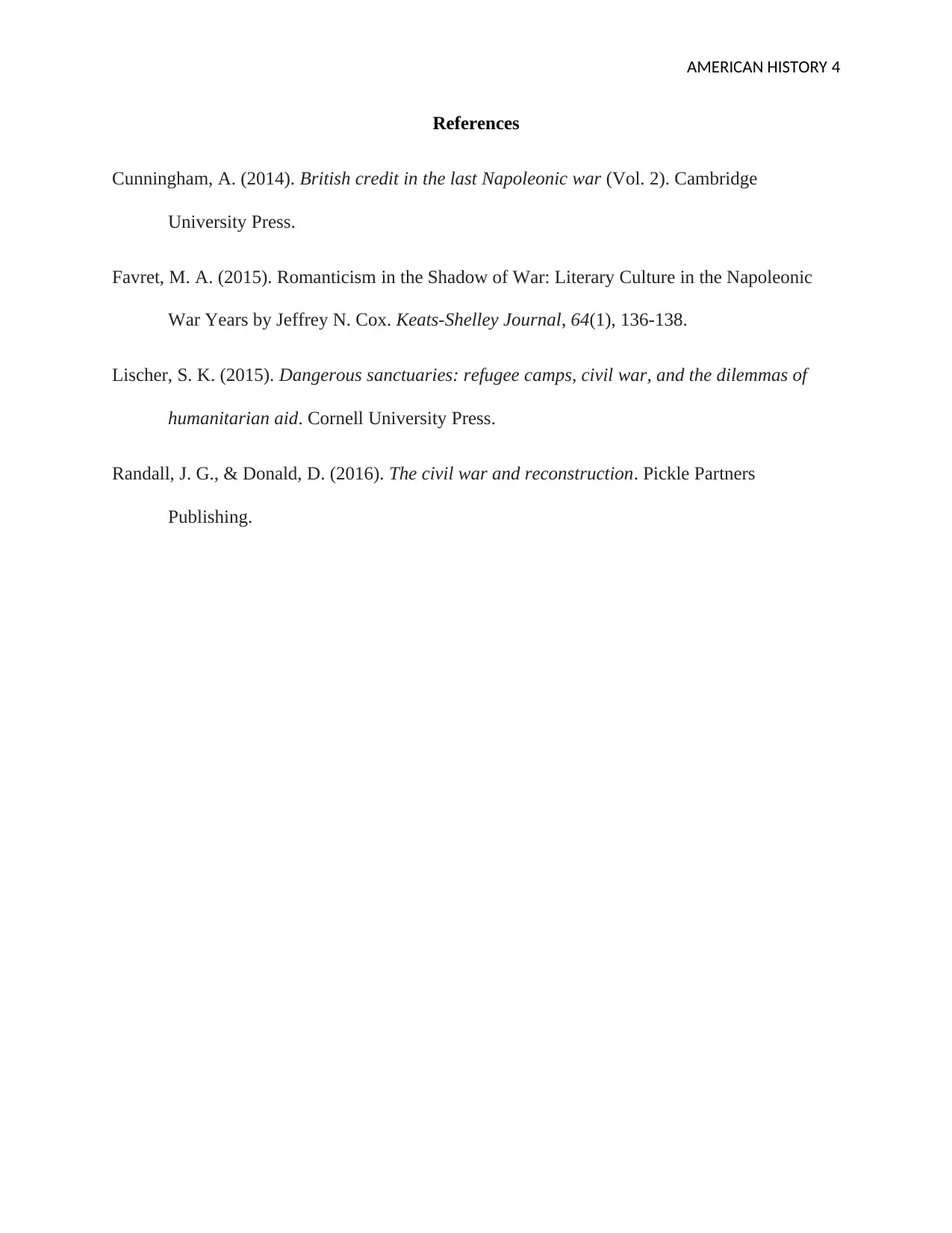American History Assignment: Neutrality, Civil War Analysis
VerifiedAdded on 2023/06/03
|4
|666
|378
Homework Assignment
AI Summary
This homework assignment delves into critical periods of American history. The first question examines the challenges the United States faced maintaining neutrality during the Napoleonic Wars, specifically evaluating the effectiveness of Thomas Jefferson's administration's response and suggesting potential improvements. The student analyzes the Embargo Act of 1807, suggesting negotiation as a better approach. The second question explores the Civil War, considering whether it was inevitable and proposing alternative measures that could have been taken in the North and South to prevent the conflict. The student considers political, economic, and social factors, such as the secession of free states, the acceptance of Abraham Lincoln's election, and the management of U.S. Pacific expansion. The assignment offers insights into the complexities of these historical events.
1 out of 4











![[object Object]](/_next/static/media/star-bottom.7253800d.svg)